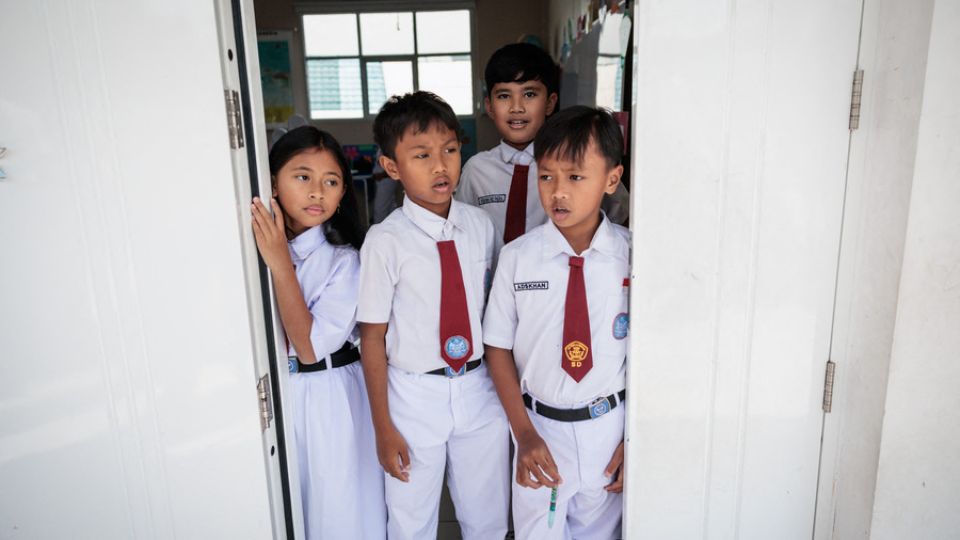May 29, 2025
JAKARTA – The government is obligated to provide free education at the elementary level in both public and private schools, the Constitutional Court has said in its ruling on a judicial review petition against the 2003 National Education System (Sisdiknas) Law filed by an education watchdog.
During a hearing on Tuesday, court justices read their conclusion that the implementation of Article 34 paragraph 2 of the 2003 law, which stipulates that basic education should be free of charge, was not inclusive of all as it has only been applied to public schools.
In the Sisdiknas Law, the basic education level covers elementary and junior high school, including their equivalent in madrassas.
The justices also noted that while the government provided funding to provide free education in public elementary schools, it failed to take notice of the limited capacity of these schools, which forced many students to enroll in private schools that charge for tuition. Such a situation, the court added, went against the state’s obligation as stipulated in the law.
“The state must implement a basic education financing policy that [covers] students in public and private schools as well as madrassas, through educational assistance mechanisms or subsidies, so that there won’t be any gap in access to basic education,” Justice Enny Nurbaningsih said, reading the ruling on Tuesday.
Free elementary education, the justice continued, is part of the economic, social and cultural rights of a citizen, which can be fulfilled “gradually, selectively and affirmatively without being discriminatory” depending on the state’s capacity.
However, the court justices acknowledged that there are private schools offering additional curricula beyond that required by the government, such as international or religious schools. Enny said the government should not force these institutions to provide free education for their students, whose parents are aware of the tuition obligations of enrolling in such schools.
Considering the state’s limited capacity to fund students for their basic education, Justice Enny said the government should draw up a funding plan that prioritizes basic education needs in private schools that fulfill the criteria for such financial assistance.
The court also urged private schools to help ease tuition costs for their students, especially in “areas where there are no state-funded schools around”.
The judicial review petition challenging the 2003 Sisdiknas Law was submitted in December 2023 by the Network for Education Watch Indonesia (JPPI). The plaintiff contested the phrase of “compulsory basic education at least in the basic level without any charges” in Article 34 paragraph 2 of the law, arguing it should also apply for students in private schools.


